Neuroscience for Educational Leaders Programme
Empower your leadership journey with neuroscience insights tailored for educational leaders.
"Transform Your Approach to Educational Leadership"
Are you ready to revolutionise your approach to educational leadership? Our Neuroscience for Educational Leaders Programme is designed to equip educational leaders like you with the neuroscience knowledge, skills, and strategies needed to lead with confidence, resilience, and impact.
Course starts
23rd September '25
7 Day
Programme
Session Times
10-12noon and 1-3pm
Online
via Zoom
Early Bird Price - £1400 (before 30th August 25)
Full Price - £1800
Payment options available
What is our Neuroscience for Educational Leaders Programme?
Our NfEL programme is designed to take you on a transformative learning journey that will deepen your understanding of neuroscience and its applications in educational leadership. Through a series of 7 engaging modules, expertly crafted by renowned neuroscientist Professor Patricia Riddell, you'll explore the fascinating interplay between the brain and leadership, gaining invaluable insights that will empower you to lead with excellence.
Programme Modules and Dates
Intro to Neuroscience for Leaders
23rd September 2025, 10-12 noon and 1-3pm
Epigenetics and Neuroplasticity
This is a bedrock of neuroscience which provides an understanding of what is available to change in the brain and how best to create this change.
Networks in the Brain
This section will introduce you to several important networks in the brain. These networks will be used throughout the programme to consider how the mechanisms in the brain result in individual reactions to particular situations and contexts. By introducing these networks, we set the scene for later understanding and application.
Psychological Safety in Teams
Here we describe what changes in the brain when individuals in a team move from feeling psychologically unsafe to psychologically safe. This allows leaders to understand the benefits of psychological safety. Tools to help make this change are then outlined.
Building Rapport
One way that leaders create psychological safety is by building and maintaining rapport with members of their team. This section will describe ways in which leaders can quickly and effectively build rapport and demonstrate how this improves communication skills.
Developing the Brain
14th October 2025, 10-12 noon and 1-3pm
Developmental Neuroplasticity
Here, we will explore the differences in the available neuroplasticity at different points in the lifespan and consider the implications of this for leading pupils of different ages, and staff.
Windows of Opportunity in the Development of the Brain
Different networks and parts of the brain develop at different rates and this has implications for managing learning and behaviour. Here, we will outline the developmental time frames of networks in the brain and consider the implications for teaching, learning, and leading.
The Adolescent Brain
Adolescence is a time of major brain development. We will outline what changes during this period and consider how educators can best help adolescents develop with well-being and resilience while maximising the potential of their developing brains.
The Neurodiverse Brain
Creating an inclusive environment in a school requires a good understanding of the way that a range of individuals might interact with the world. Here, we will consider models of neurodiversity and how these can help educational leaders to build inclusive schools.
Leading for Well-Being and Resilience
4th November 2025, 10-12 noon and 1-3pm
Recognising and Regulating Yours and Others’ Emotions
In order to be able to manage other people’s emotions well, it is important to start by recognise and regulate your own emotions. Here we will consider the neuroscience of emotional recognition and regulation and provide tools to help you regulate your own and others’ emotions when required.
Responding to Stress
Stress is a currently common challenge for many individuals in education. Here we will discuss why we have a stress response, what happens in the body and brain when we are stressed and ways to help respond effectively in stressful situations.
Levels of Stress
How do you know when you are stressed, and to what extent this is affecting your performance. Here, we will talk about the impact of different levels of stress on the body and brain. We will also discuss both how to recognise when you are overly stressed and how you might better manage this.
Building and Maintaining Resilience
If we are to deal better with stress, it is important for us to learn how to build and maintain personal, team and organisational resilience. Here we will provide a framework to aid this.
Managing Challenging Situations
2nd December 2025, 10-12 noon and 1-3pm
Being Assertive
When we are leading others, it is important to find a middle ground between being accommodating and becoming aggressive. Being assertive forms this middle ground. Here we will discuss the consequences of failing to find this middle ground, and how to improve your ability to be in this space.
Rights and Responsibilities
Whenever possible, it makes sense to plan your strategy for a challenging situation. One factor that can help to clarify what to do is to have a clear idea of what your rights and matching responsibilities are in these situations. Here we will discuss why this makes challenging situations easier from a neuroscience perspective and how to plan in advance.
Clarifying Responsibilities
When working with others, there are times when it is not clear who is responsible for different parts of a job. This can lead to overlap in work and the potential for some aspects of the work being missed. Here we will discuss how to clarify responsibilities with members of your team to identify overlaps which lead to extra, unneeded work or failure to complete a task.
Challenging with Empathy
When we are dealing with people that we find challenging, it is useful to consider the situation from the perspective of each person involved. This helps us to lead and challenge from a position of empathy. Here, we will describe the evolutionary purpose and neuroscience of empathy and provide tools that will help you build your ability to lead and challenge with empathy.
Motivating Others
13th January 2026, 10-12 noon and 1-3pm
Understanding Others Logically
Consider the type of language that you use when you are praising someone and compare this to the language you use when you would like them to change their behaviour. Are these the same? Here, we will consider how best to both praise and provide feedback in line with the way our brains function. This will allow you to give more effective positive and constructive feedback.
Individual Differences in Motivation 1 & 2
Leaders have to be able to motivate every individual in their teams. But different people are motivated in different ways. Understanding these differences from a neuroscience perspective can help you to create motivational strategies that work for whole teams, and to change your strategy to be more effective for an individual team member.
Motivating through Values
Much of our decision making and subsequent behaviour, both conscious and unconscious, is driven by our values. Individual differences in what values are most important therefore will change how someone will react in a particular situation. By understanding what values are most important to team members, leaders can better motivate through showing how these values can be met. Here, we will describe how values are formed and stored in the brain, how these drive behaviour and therefore how leaders can learn to motivate through values.
Effective Change Management
Making major changes within the school context can be challenging – often there are individual who are resistant to change. Here we will discuss the paradox of change – our brains change relatively easily but our behaviour sometimes does not. We will then provide a model of behaviour change that is based in neuroscience that can be used for either individual or organisational change.
Decision Making in Leadership
10th February 2026, 10-12 noon and 1-3pm
Fast and Slow Decision Making
We all make thousands of decisions per day yet we are aware of only a small proportion of these. Here, we will differentiate between the decision-making mechanisms in the brain responsible for fast, unconscious and slow, conscious decisions. We will explain what types of decisions are made in each system and provide tools to help leaders become more aware of the types of decisions they are making.
Deliberate Intuition
If there are two decision-making systems, how can we best use each to make effective decisions? Here, we will provide a model that helps leaders to decide what type of decision making might be more effective for particular situations.
Unconscious Bias in Education
When building inclusive schools, it is useful to consider how unconscious biases might interfere with this process. Here, we will discuss how unconscious biases from, and how they drive behaviour from a neuroscience perspective. We will then consider how this can be addressed from a leadership perspective.
Decision Making Under Pressure
We do not always make the same decisions when we are under pressure as we would do when we have more time to think through a situation. Here, we will describe what changes when we make decisions under pressure and provide tools to help leaders make more effective decisions in these situations.
Empowering your Team
17th March 2026, 10-12 noon and 1-3pm
Managing and Sharing Information
Have you noticed that some people provide information at a high level while others like to go into a lot of detail? This individual difference in the amount of detail required when sharing information and making decisions can create a tension within teams. Here we will provide a neuroscientific basis for this difference and will show how this can be managed effectively so that everyone shares sufficient information to make decisions possible.
Making Group Decisions
Having the wisdom of many heads can improve our decision making but it is sometimes difficult to come resolve differences of opinion when many people are involved in making a decision. Here we will provide a model which helps leaders to make effective decisions while including many voices.
Essential Questions for Managing Performance
One role of a leader is the day-to-day management of the team. But often this comes on top of all of the other jobs that leaders must perform to keep the organisation on track. Here we will provide a model which allows for effective team management that takes little time to perform.
Giving Effective Feedback
Leaders often have to give both positive and constructive feedback to help their teams to develop. Here we will explain how feedback is interpreted in the brain and provide a model of how to give feedback that is likely to improve communication and team development.

Programme Trainer
Professor Patricia Riddell
Renowned for her work in applied neuroscience, Professor Riddell brings a unique perspective to leadership development. With academic qualifications from prestigious institutions and extensive experience in coaching and leadership, she is committed to bridging the gap between neuroscience and education.
Why should you attend the programme?
Neuroscience Insights
Gain a deep understanding of the neuroscience principles underpinning effective leadership.
Practical Strategies
Acquire practical strategies and tools to enhance your leadership effectiveness and resilience.
Community Engagement
Join a community of like-minded educational leaders, sharing insights and experiences.
Leadership Impact
Elevate your leadership impact and drive positive change within your educational institution.
Contact us any time
Contact Us
We will get back to you as soon as possible
Please try again later
Quick Links
Contact
info@neuroscienceforeducation.com
Neuroscience for Education, 2023.
